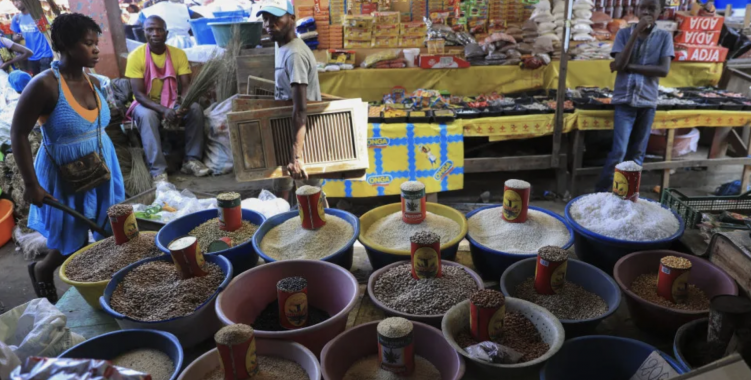In Angola, these traders run small businesses, including the popular convenience stores, known locally as "cantinas dos Mamadus", in reference to their Muslim beliefs, where various everyday and essential goods can be purchased, from food to hygiene and cleaning products, at low prices.
Tounkara Mohamed Saidou, from Guinea-Conakry, is one of them and explained to Lusa how the informality of these businesses and the lack of regulation aggravate the vulnerability of the community and hinder their integration into the formal Angolan economic fabric.
The trader has lived in Angola since 2005 and is currently president of the West African Traders Association, which brings together representatives from 15 countries, and of the Association for the Development of Angolan and Foreign Youth.
According to Tounkara Saidou, since 2007 the association has been bringing together professionals in carpentry, metalwork and cooking to provide free training to young nationals and foreigners, with the intention of "helping the Angolan government combat crime and unemployment".
The illegal migration situation is the main concern of this community, said Tounkara Saidou, emphasizing that there are people who have been in Angola for more than 15 or 20 years without being able to legalize their status, as is his case.
"These are people who have not committed crimes, are working here, have raised families, most of them arrived here with visas", he emphasized, explaining that many became illegal due to the difficulties they faced in legalizing their status, others because they did not know how to proceed, and suffered extortion.
Given this situation, the simple act of opening a bank account or buying a SIM card for mobile communications is difficult due to the lack of documentation, with many forced to keep their money at home, subject to robberies, or to rely on the help of an Angolan citizen to buy a mobile phone chip.
In order to overcome this situation, the association is putting forward a proposal to carry out a general registry, at a national level, foreseeing the registration of more than 300,000 West African citizens involved in commerce.
According to the officer, illegality poses several dangers for people who live without documentation and without the authorities being aware of their existence, affecting basic rights, for example, the right to education, leaving children outside the education system.
"My daughter is 12 years old, my sister is 14 years old, they have never attended public school. The solution is to hire someone, a teacher, who comes to our house three times a week to teach, but that is not what we want, it cannot continue like this," he said.
In addition to legalization, the association argues that these citizens, most of whom are traders, can contribute to the growth of the Angolan economy by paying taxes.
"In January, we began registering and managed to process more than 140 CPF [Individual Taxpayer Registry] numbers for traders, and some of this group have already started to voluntarily pay their taxes," he said, reinforcing that "the main focus is to control all traders, pay taxes and educate them not to violate the country's laws."
However, the lack of material support has slowed down the registration process, said Tounkara Saidou, who owns a small cantina in the municipality of Viana, emphasizing that, in Luanda alone, the registration of 100,000 "canteens" is expected.
"This project is very important because – let's imagine – each of them manages to pay 20,000 or 40,000 kwanzas in taxes per month, [multiplied] by 300,000 merchants, and it is enough to support our economy," he emphasized.
The officer emphasized that, despite being small, these businesses create jobs and help pay the rent for their homes and stores.
"A single 'mamadu' employs four young people, pays the rent for where they sleep, pays for electricity, water, and there are workers in the canteen," he said, reiterating the need to be legal in order to invest more and promote more jobs.







